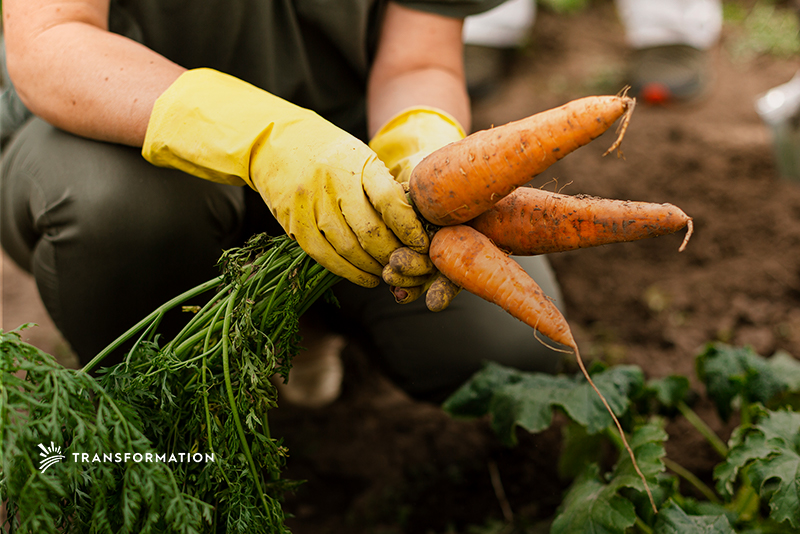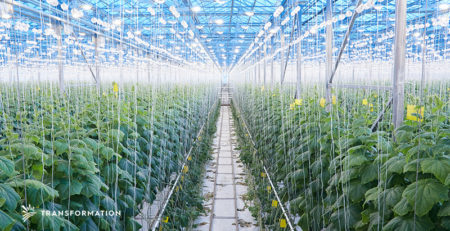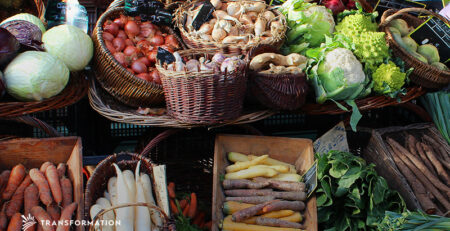The Ecology Center: A Model for Farming in Southern California
The Ecology Center, a 28-acre organic farm and nonprofit organization in San Juan Capistrano, California, started humbly. The educational center was born at the 1879 farmhouse of the Pony Express rider Joel Congdon. The one-acre historical site is the oldest wooden structure in the city, and was underutilized until Evan Marks, the Founder and Executive director of The Ecology Center, saw the potential in the space.
Before starting The Ecology Center, Evan Marks worked on permaculture and agroecology projects. Nationally, he has experience in California and Hawaii, and internationally, he spent time learning in Costa Rica, Peru, Mexico, Ghana, and Nigeria. When he returned to Orange County, where he grew up, he wanted to use his knowledge to create community-centered change in a place lacking ecological education.
Expansion During the Pandemic
The Ecology Center was already creating waves before COVID-19. For the first ten years, from 2008-2018, organizational programming centered on three initiatives (GROW, EAT, and MAKE) to provide the community with ecological education in gardening, cooking, and art. However, in 2018, the nonprofit was granted the opportunity to grow exponentially. On August 21, the City of San Juan Capistrano voted in favor of leasing the organization the neighboring 27 acres to provide food and enhance educational experiences for the community.
For the next year and a half, the team slowly planted cover crops and trees to let the land rest after many years as a monoculture strawberry farm. But when the pandemic hit, the organization pivoted to focus solely on farming and feeding the community. Rapidly planting food, The Ecology Center grew their Community Supported Agriculture (CSA) offerings to meet community demand. CSA is a production and marketing model where consumers buy shares of the harvest in advance to provide farmers financial security. Now, The Ecology Center is a full-fledged organic farm and has been working on exciting initiatives.
New Initiatives During COVID-19
Farm Apprenticeship Program
Last Monday, The Ecology Center began the first day of their Farm Apprenticeship Program. Eight apprentices will gain training for regenerative agriculture-related careers. Over seven months, this group will gain instruction in:
- Greenhouse and propagation: compost, seed saving, crop planning
- Market gardening and cut-flowers: soil building, hand tools, water and irrigation management
- Farm-scale production: pest management, crop rotation, tractors, farming systems, CSA
- Culinary: farm-to-table cooking, food preservation, culinary business
Ultimately, the program aims to develop a network of Southern California farmers and expand the reach of The Ecology Center’s community and environmental missions.
Nourishing Neighbors
At the beginning of the pandemic, The Ecology Center was already committed to donating 20% of farm share boxes. However, a box full of vegetables and fruits, sometimes uncommon and more challenging to prepare, was not tailored to local families experiencing food insecurity.
In October 2020, Nourishing Neighbors launched in response to the need for more basic kitchen ingredients. This initiative tailors to the needs of the community. In its first three months, Nourishing Neighbors provided over 8,500 pounds of locally grown produce from The Ecology Center farm, as well as rice, beans, onions, and tortillas. The boxes are distributed through community partnerships and aim to fulfill the nonprofit’s mission to “give more than you take.”
Community Table (At Home)
Before COVID-19, the Community Table Dinner series was a way to bring people together over a farm-to-table meal. Each dinner would pair a renowned chef with a local farmer to develop a menu around an agricultural theme. With this model, guests engaged with food and conversation to build interactive learning experiences.
Per social distancing guidelines, The Ecology Center started a new iteration. Community Table (at-home) is an initiative to support local restaurants and offer members with high-quality meals for pick-up. Every two to three weeks, The Ecology Center partners with a local restaurant to create a multi-course seasonal meal. All proceeds from the dinners go to the chef-partner to support their businesses in this unprecedented time.
Inspiration For Investors
Blending philanthropy and earnings from The Farmstand, the on-site store that sells local food and home goods, The Ecology Center has developed a unique model. The 28-acre space is dedicated to environmental sustainability as it utilizes solar energy, supports soil carbon sequestration, and is working towards zero-waste.
Beyond environmental concerns, The Ecology Center has rapidly transformed into a food-producing hub and supports the local community through education, charitable donations, and providing a platform to support struggling restaurants. With so much positive energy and a capacity to rise to the challenge, impact investors should pay attention to what The Ecology Center does next.





Leave a Reply